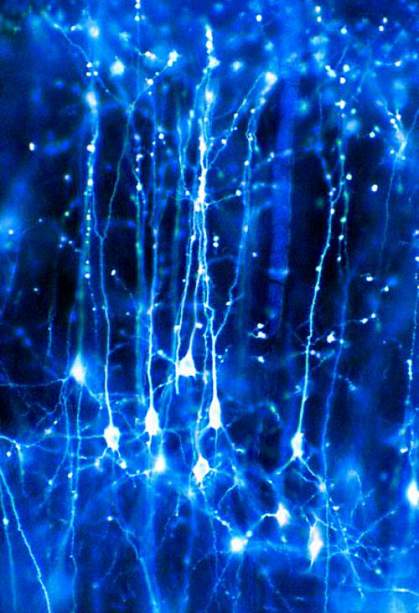You are here
May 14, 2012
Mental Replay in Learning and Memory

A study in rats suggests that the mental replay of an experience is essential for making informed decisions. The work brings researchers closer to understanding how memories are represented in the brain and used to guide future behavior. This knowledge may eventually lead to new approaches for treating memory disorders such as post-traumatic stress disorder.
Our ability to learn from past experiences depends on our capacity to store and retrieve memories. The brain’s hippocampus plays a central role in memory storage and retrieval. The specific brain activity involved in the process, however, is poorly understood. Groups of neurons (nerve cells) often replay past experiences in split-second bursts called sharp-wave ripples (SWRs). SWRs occur during mental down periods, such as sleep or rest. SWRs during sleep are known to help strengthen memories. A research team led by Dr. Loren Frank of the University of California, San Francisco, set out to explore the role of SWRs during a wakeful state in learning and decision-making.
The researchers studied spatial memory in rats. Individual neurons in the hippocampus become associated with a particular place and fire when the animal is in that place. Recordings of these neurons accurately reflect the animals' movement through a maze. The same neurons fire during SWRs, quickly reproducing the same sequence as when the rat walked through the maze.
To gain insight into wakeful SWRs, the scientists designed a system that selectively suppressed the ripple events. They fitted the animals with electrodes that could identify SWRs. Each SWR triggered a small pulse of electricity to another set of electrodes that immediately interrupted the ripple event. This system essentially turned off memory replay activity without otherwise affecting the brain.
For 8 days, the rats ran two 15-minute sessions on a W-shaped track. To get a reward, the animals had to remember which of the 2 outer arms of the maze they had visited previously and to alternate between them. Alternating between the arms required working memory because the rats had to remember which of the arms they had visited the last time. For comparison, the researchers tested rats with no electrodes as well as others that received a delayed electric pulse that didn’t disrupt SWRs. The study was funded in part by NIH's National Institute of Mental Health (NIMH).
In the early online edition of Science on May 3, 2012, the researchers reported that the rats' performance on the test was worse without the benefit of mental replay. The SWR-disrupted animals performed fewer correct trips to the outer arms of the maze than the control animals across all 8 days of learning. All the SWR-disrupted animals learned more slowly than the control animals.
“It appears to be these ripple-like bursts in electrical activity in the hippocampus that enable us to think about future possibilities based on past experiences and decide what to do,” Frank explains.
Even though the replay events in rats last just a fraction of a second, they are similar to our own memories, which often compress lengthy events into short highlights. “Similar patterns of hippocampus activity have been detected in humans during similar situations,” Frank says. The team plans to continue exploring how the rats use these memory replay events to make decisions.
Related Links
References: Science. 2012 May 3. [Epub ahead of print]
